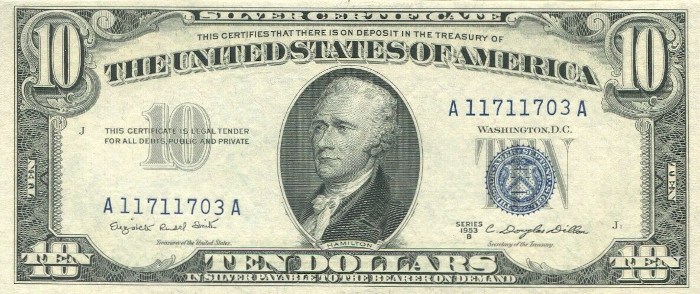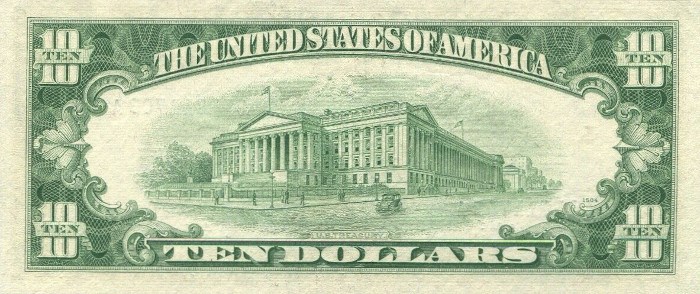The 1953 ten dollar silver certificates can be valuable depending on their condition. Star notes are available and they will sell for more money. Continue reading to learn more about these bills.


Specifications
| Denomination: | $10.00 U.S. Dollar |
| Type: | Silver Certificate |
| Seal Color: | Blue |
| Portrait: | Alexander Hamilton |
| Series: | Three: 1953, 1953A, 1953B |
Value
Most 1953 series $10 silver certificates in circulated condition will be worth more than their face value of $10. Bills in the higher condition grades will be more valuable. Star notes will sell for the most money.
Below are the general values for each series in very fine condition and MS 63 uncirculated condition.
| Series | Very Fine | MS 63 Uncirculated |
|---|---|---|
| 1953 | $60 | $175 |
| 1953A | $55 | $200 |
| 1953B | $55 | $145 |
Star Notes
Star notes are replacement bills that the United States Federal Reserve printed. These star notes are more rare and thus more valuable. You can tell if you have a star note by looking to see if there is a star symbol before the serial number.
The 1953 series $10 silver certificate star notes are worth around $100 in very fine condition. In uncirculated condition the price is around $500 for notes with an MS 63 grade.
The 1953A series $10 silver certificate star notes are worth around $115 in very fine condition. In uncirculated condition the price is around $450 for notes with an MS 63 grade.
Note: Valuable bills should be placed inside currency holders.
Grading System
Very fine- A note that has been in circulation but not for a long time. The note is still relatively crisp. There may be some creases, folds, or light smudges.
MS 63 choice uncirculated- A note that shows no signs of ever having been in circulation. The note still has its original crispness. The note is also well-centered.
Sources:
A Guide Book of United States Paper Money
See also:
